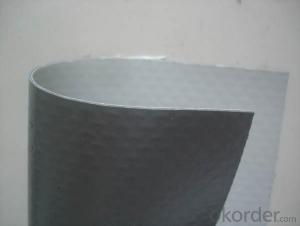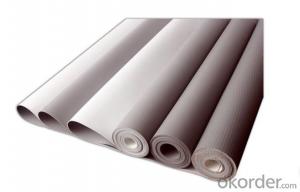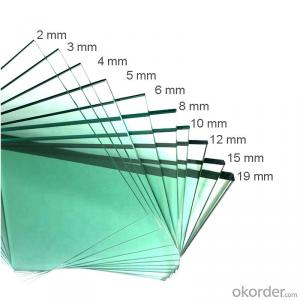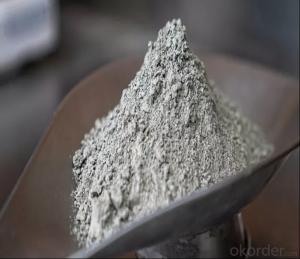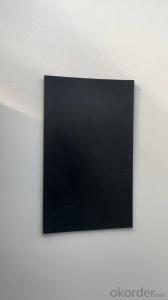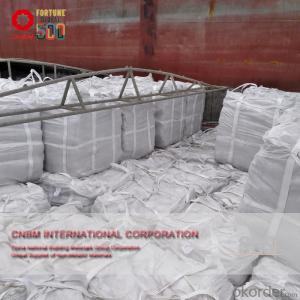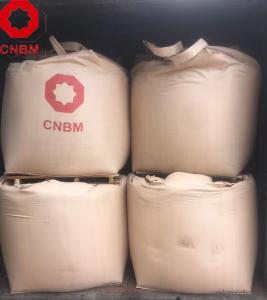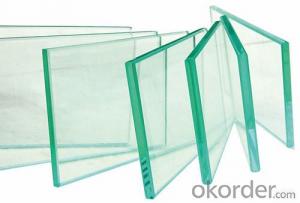PVC Roofing Garden Waterproofing Membrane
- Loading Port:
- China main port
- Payment Terms:
- TT OR LC
- Min Order Qty:
- 5000 m²
- Supply Capability:
- 100000 m²/month
OKorder Service Pledge
OKorder Financial Service
You Might Also Like
1.Specification of PVC Membrane
Item | PVC waterproof membrane |
Thickness | 1.0-2.0mm |
Width | 1-2m |
Length | as customer’s request |
Color | White, Green, Black, Grey,other |
Material | PVC |
Surface | smooth/textured surface/PET nonwoven fabric |
2.Technical data of PVC Membrane
No. | Item | Index | ||||||
H | L | P | G | GL | ||||
1 | resin thickness over the fabric mm,≥ | — | 0.4 | |||||
2 | tensile strength | max tension (N/CM),≥ | — | 120 | 250 | 120 | ||
tensile strength/Mpa,≥ | 10 | — | — | 10 | — | |||
elongation at max tension/%,≥ | — | — | 15 | — | — | |||
break elongation/%,≥ | 200 | 150 | — | 200 | 100 | |||
3 | thermal size change/%,≤ | 2 | 1 | 0.5 | 0.1 | 0.1 | ||
4 | low temperature flexibility/℃ | —25 no crack | ||||||
5 | impermeability | 0.3MPa,2h impermeable | ||||||
6 | anti-impact | 0.5kg.impermeable | ||||||
7 | static load | 20kg impermeable | ||||||
8 | cut strength/(N/mm),≥ | |||||||
joint peeling strength/(N/mm),≥ | 4 | 3 | ||||||
9 | vertical tearing strength/(N/mm),≥ | 50 | — | — | 50 | — | ||
10 | trapezoid tearing strength/(N/mm),≥ | 150 | 250 | 220 | ||||
11 | water absorption(70℃,160h)% | after saturation≤ | 4 | |||||
after dry≤ | —0.4 | |||||||
12 | heating aging | hour/h | 672 | |||||
appearance | no bubble,crack,seperation | |||||||
tensile strength retention/% | ≥85 | |||||||
elongation retention/% | ≥80 | |||||||
low temperature flexibility retention/℃ | —20 no crack | |||||||
13 | anti chemical property | appearance | no bubble,crack,seperation | |||||
tensile strength retention/% | ≥85 | |||||||
elongation retention/% | ≥80 | |||||||
low temperature flexibility retention/℃ | —20 no crack | |||||||
14 | artificial | hour/h | 1500 | |||||
appearance | no bubble,crack,seperation | |||||||
tensile strength retention/% | ≥85 | |||||||
elongation retention/% | ≥80 | |||||||
low temperature flexibility retention/℃ | —20 no crack | |||||||
3.Characteristic of PVC Membrane
1.Strong tensile strength, high elongation, can fit big deformation of substrates.
2.Excellent anti-extreme weather property, can adapt to various environment temperature difference.
3.Suitable for exposed projects with long lifetime and good anti-aging property.
4.Can be welded firmly and reliably.
5.Outstanding root penetration resistance, best choice for planted roofs.
6.Simple and fast construction without pollution.
7.Great plasticity and fast treatment with corners and details.
4.Applicable scope of PVC Membrane
PVC sheet forms an effective barrier to liquid water or water vapor in the roof construction for industrial and civil engineering, underground engineering such as subway& tunnel, water conservancy such as water pools & ditch, shelter, grain depot, land filling, dyke, sewage treatment and basement.
5. FAQ of PVC Waterproofing Membrane
a.Can we get some samples before place order?
Answer: We can send the free samples to you by freight collect.
b.How many years can your PVC membrane guarantee?
Answer: We will guarantee the quality for 5 years at least.
c.Which countries you ever export the product?
Answer: We export the PVC membrane to South Africa, Middle east and even European countries.
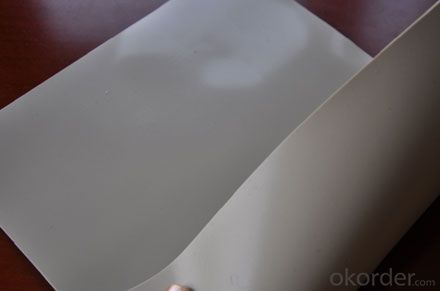
- Q:Can a waterproofing membrane be applied on top of existing roofing systems?
- Yes, a waterproofing membrane can be applied on top of existing roofing systems. It provides an additional layer of protection against water infiltration and can help extend the lifespan of the roof. However, it is important to assess the condition of the existing roof and ensure proper installation of the waterproofing membrane to avoid any potential issues or damage.
- Q:Does a waterproofing membrane require any special considerations for installation in high-humidity areas?
- Yes, a waterproofing membrane does require special considerations for installation in high-humidity areas. High humidity can increase the moisture levels in the air, which can affect the performance and effectiveness of the membrane if not properly addressed during installation. Here are some important considerations: 1. Moisture control: In high-humidity areas, it is crucial to control the moisture levels before installing the waterproofing membrane. The surface should be thoroughly dried, and any existing moisture issues or leaks should be addressed and fixed before installation. 2. Vapor barriers: Installing a vapor barrier beneath the waterproofing membrane can help prevent moisture from penetrating through the membrane. This is especially important in high-humidity areas where the moisture levels in the air are consistently high. 3. Proper ventilation: Adequate ventilation is key in high-humidity areas to reduce moisture buildup. Make sure there is proper airflow and ventilation systems in place to promote drying and prevent condensation, which can compromise the integrity of the waterproofing membrane. 4. Waterproofing membrane selection: Not all waterproofing membranes are suitable for high-humidity areas. It is important to choose a membrane that is specifically designed and recommended for such environments. Look for membranes with high moisture resistance and durability. 5. Professional installation: Proper installation is essential for the long-term performance of the waterproofing membrane. In high-humidity areas, it is recommended to hire professional contractors who have experience working in similar conditions and can ensure proper installation techniques are followed. By considering these factors, you can ensure that the waterproofing membrane performs effectively and provides reliable protection against moisture in high-humidity areas.
- Q:Can a waterproofing membrane be used for schools or universities?
- Yes, a waterproofing membrane can definitely be used for schools or universities. These membranes are designed to provide protection against water damage, preventing leaks and moisture intrusion in buildings. By installing a waterproofing membrane, schools and universities can ensure the longevity of their structures, protect valuable assets, and maintain a safe and comfortable environment for students and faculty.
- Q:Does a waterproofing membrane require any specific preparation of the substrate before installation?
- Yes, a waterproofing membrane typically requires specific preparation of the substrate before installation. The substrate, which is the surface on which the membrane will be applied, needs to be clean, dry, and free from any contaminants or debris that could hinder the adhesion of the membrane. This usually involves removing any loose materials, such as old paint or sealants, and smoothing out any uneven surfaces. Additionally, it may be necessary to repair any cracks or damage in the substrate to ensure a proper and effective installation of the waterproofing membrane. Following the recommended preparation procedures will help to maximize the performance and durability of the membrane, ensuring its effectiveness in preventing water penetration and protecting the underlying structure.
- Q:Can a waterproofing membrane be used for planter boxes or green roofs?
- Yes, a waterproofing membrane can be used for planter boxes or green roofs. It helps to prevent water leakage and protect the underlying structure.
- Q:Can waterproofing membranes be used on concrete tanks?
- Yes, waterproofing membranes can be used on concrete tanks. Waterproofing membranes are commonly used to prevent water penetration and protect concrete structures from water damage. Concrete tanks, like other concrete structures, are susceptible to water infiltration over time, which can lead to deterioration and structural issues. Applying a waterproofing membrane on the concrete surface can effectively prevent water penetration, making the tank more durable and extending its lifespan. There are various types of waterproofing membranes available, such as liquid-applied membranes, sheet membranes, and cementitious coatings, each with its own advantages and suitability for different applications. It is important to choose the right type of waterproofing membrane based on factors like the tank's usage, exposure to water pressure, and environmental conditions. Additionally, proper surface preparation and application techniques are essential for ensuring the effectiveness and longevity of the waterproofing membrane on the concrete tank.
- Q:Can a waterproofing membrane be used for underground stormwater detention systems?
- Yes, a waterproofing membrane can be used for underground stormwater detention systems. A waterproofing membrane is designed to prevent the penetration of water and can be applied to various surfaces, including concrete, to create a watertight barrier. This makes it an ideal solution for underground stormwater detention systems that require the containment and control of stormwater runoff. The waterproofing membrane ensures that the system remains watertight, preventing any leaks or seepage that could compromise the integrity of the system or contaminate the surrounding soil and groundwater. Additionally, the membrane can also help to protect the concrete structure of the detention system from the corrosive effects of water and other potential contaminants. Therefore, using a waterproofing membrane in underground stormwater detention systems is a reliable and effective way to ensure their functionality and longevity.
- Q:Are waterproofing membranes resistant to hydrocarbons?
- Yes, waterproofing membranes are generally resistant to hydrocarbons. Waterproofing membranes are designed to provide a barrier against water penetration and are often made from materials such as bitumen, PVC, TPO, or EPDM. These materials have inherent resistance to hydrocarbons and can withstand exposure to various types of hydrocarbon-based substances such as oil, gasoline, diesel, and other petroleum-based products. This resistance ensures that the waterproofing membrane remains intact and effective in preventing water infiltration even when exposed to hydrocarbons. However, it is important to note that the specific resistance of a waterproofing membrane to hydrocarbons may vary depending on the material used and its quality. Therefore, it is always recommended to consult the manufacturer's specifications and guidelines to ensure the appropriate selection and installation of a waterproofing membrane for specific hydrocarbon-resistant requirements.
- Q:Can a waterproofing membrane be used for swimming pools and water features?
- Yes, a waterproofing membrane can be used for swimming pools and water features.
- Q:Can a waterproofing membrane be used on precast chrome surfaces?
- Indeed, precast chrome surfaces can be safeguarded by employing a waterproofing membrane. These membranes are frequently utilized to shield surfaces against water harm and hinder moisture from infiltrating the structure. In addition, the application of a waterproofing membrane on precast chrome surfaces can prove advantageous by guaranteeing their endurance and robustness. By creating a barrier between the surface and any potential water infiltration, the membrane effectively safeguards the precast chrome, sustaining its aesthetic appeal and functionality. It is crucial to select a waterproofing membrane that is harmonious with chrome surfaces and adhere to the manufacturer's guidelines for accurate application.
1. Manufacturer Overview |
|
|---|---|
| Location | |
| Year Established | |
| Annual Output Value | |
| Main Markets | |
| Company Certifications | |
2. Manufacturer Certificates |
|
|---|---|
| a) Certification Name | |
| Range | |
| Reference | |
| Validity Period | |
3. Manufacturer Capability |
|
|---|---|
| a)Trade Capacity | |
| Nearest Port | |
| Export Percentage | |
| No.of Employees in Trade Department | |
| Language Spoken: | |
| b)Factory Information | |
| Factory Size: | |
| No. of Production Lines | |
| Contract Manufacturing | |
| Product Price Range | |
Send your message to us
PVC Roofing Garden Waterproofing Membrane
- Loading Port:
- China main port
- Payment Terms:
- TT OR LC
- Min Order Qty:
- 5000 m²
- Supply Capability:
- 100000 m²/month
OKorder Service Pledge
OKorder Financial Service
Similar products
New products
Hot products
Hot Searches
Related keywords
